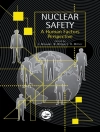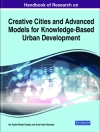Information technologies have evolved to an enabling science for natural resource management and conservation, environmental engineering, scientific simulation and integrated assessment studies. Computing plays a significant role in the every day practices of environmental engineers, natural scientists, economists, and social scientists. The complexity of natural phenomena requires interdisciplinary approaches, where computing science offers the infrastructure for environmental data collection and management, scientific simulations, decision support, documentation and reporting. Ecology, environmental engineering and natural resource management comprise an excellent real-world testbed for IT system demonstration, while presenting new challenges for computer science. Complexity, uncertainty and scaling issues of natural systems constitute a demanding application domain for modelling, simulation and scientific workflows, data management and reporting, decision support and intelligent systems, distributed computing environments, geographical information systems, heterogeneous systems integration, software engineering, accounting systems, control systems, as well as sustainable manufacturing and reverse logistics. This books offers a collection of papers presented at the 6th International Conference on Environmental Engineering, held in July 2013, in Lüneburg, Germany. Recent success stories in ecoinformatics, promising ideas and new challenges are discussed among computer scientists, environmental engineers, industrial engineers, economists and social scientists, demonstrating new paradigms for problem solving and decision making.
Tabela de Conteúdo
Influence of environmental protection requirements on object-oriented software design.- Impact of Design on the Sustainability of mobile Applications.- Investigating the Promotional Effect of Green Signals in Sponsored Search Advertising using Bayesian Parameter Estimation.- Dialogue Maps: Supporting interactive transdisciplinary dialogues with a web-based tool for multi-layer knowledge maps.- The Role of ICT in Green Logistics – A Systematic Literature Review.- Green Big Data – A Green IT / Green IS perspective on Big Data.- Conceptualizing the quantification of the Carbon Footprint of IT-Services (CFIS).- Using key performance indicators and multi-criteria decision analysis to compare the sustainability of mobility.- Developing a maturity assessment model for IT-supported energy Management.- Accounting and Modeling as Design Metaphors for CEMIS.- Operational integration of EMIS and ERP systems.- Enterprise Architectures for Addressing Sustainability Silos.- Municipalities and Sustainable Tourism – Challenges, Requirements and Added Value.- The Green Product Lifecycle and Services – Is there a gap?.- Service Quality vs. Sustainability: A New Conflict of Objectives.- A standardisation of the calculation of CO2(e) emissions along supply chains – challenges and requirements beyond EN 16258.












